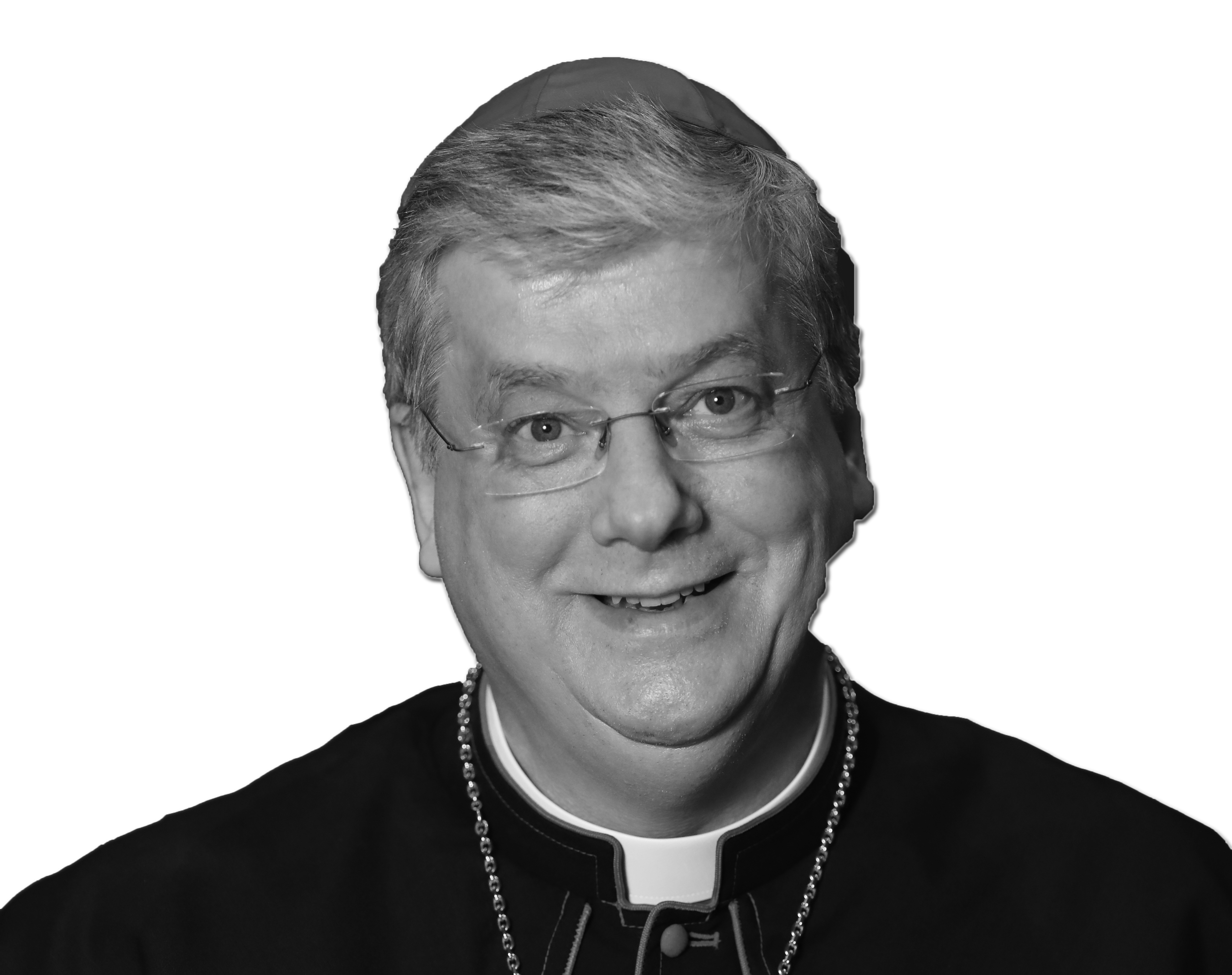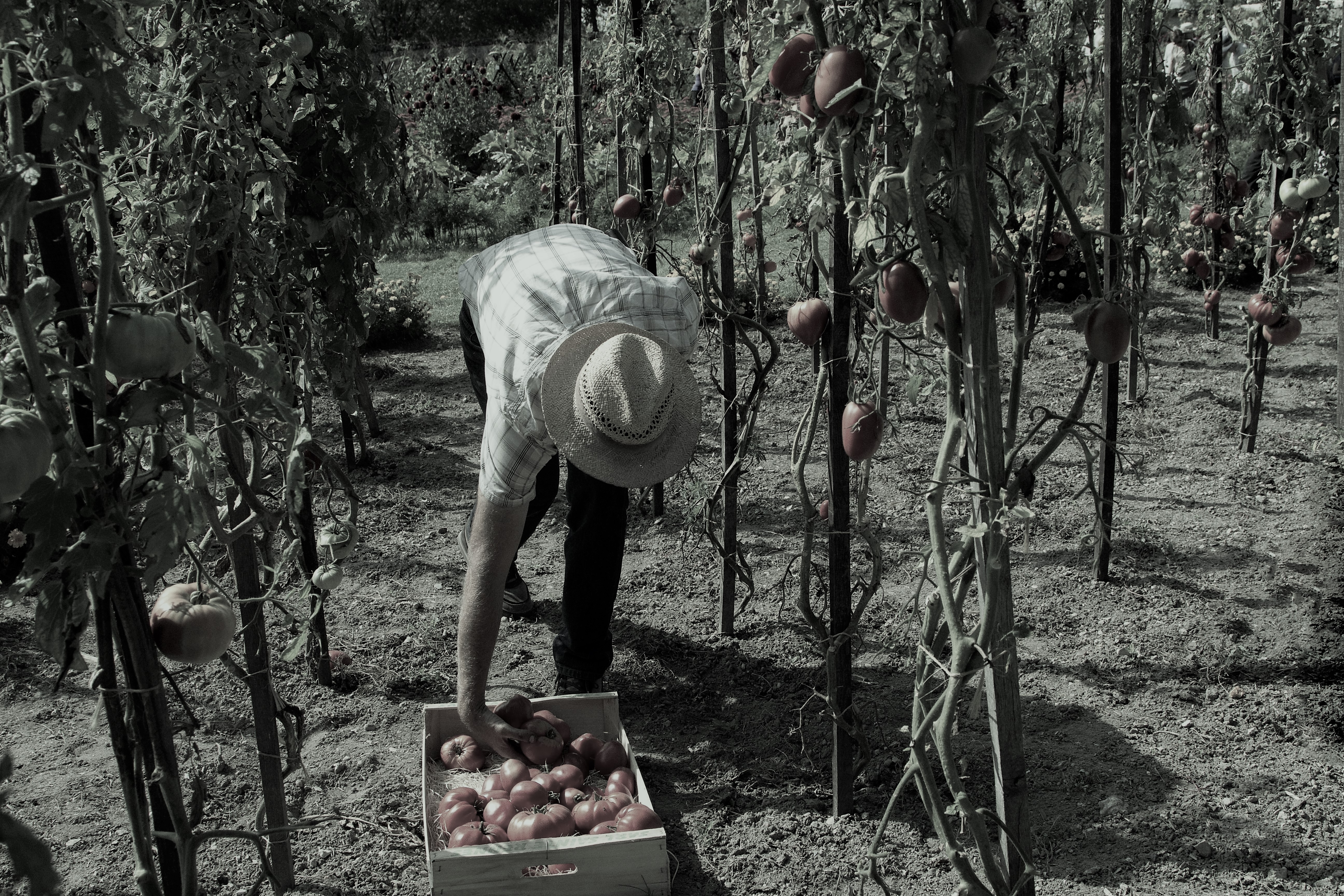I did not know my Grandpa Buckley. He died near the end of the Second World War, well over a decade before I was born. I knew, however, my three remaining grandparents; indeed, my father’s parents lived with us. They each were different, but all three shared an ardent faith in Jesus Christ and an unselfconscious confidence in his holy Church. Grandma Battersby would wrap you in her ampleness and say in her lovely brogue, “I love you intensely; I’d give you my eyes and go blinking.”
You knew two things growing up in the shadow of these witnesses: that you were loved and you were part of something greater than you. As they recited the rosary and the Seven Sorrows of Mary each afternoon, you knew they lived their lives in the light filtered through the overwhelming truth and the dawn of the Resurrection.
We sometimes in our sophistication discount the simple faith of our forebears. They never tried to fit in; it never even occurred to them. Three of the four of my grandparents were born on family farms. Realism and calling things what they were was often a matter of survival. Life was relatively short, and it wasn’t easy for men or women. It was filled with joys, but it could also be filled just as well with sorrows. Famine could force you to flee your native place. Crop prices, drought and pests made seeking employment off the farm, for a whole generation, a necessity.
The one thing that didn’t change in Belfast or in Maidstone, was “God with us,” Emmanuel. His Blessed Mother and good St. Joseph traveled together on the path of discipleship. They were with them, too; they knew the narrow and rocky road and bid each to follow unafraid. These angels of the Father didn’t promise riches, as Our Lady cautioned St. Bernadette at Lourdes; they promised what their Lord did: life in a new key, in the Risen One, Jesus Christ. They were not a people preparing for the passing finery of palaces. They were preparing for heaven, their and all creation’s new horizon, Jesus the Nazarean, the Christ.
Countless souls, whosesoever grandparents they were, were not ashamed of the carpenter’s son. He was not ashamed of being a friend of sinners, either; he was not looking for the sleek and the sophisticated, just friends, friends who weren’t afraid to be his friend, friends who understood that the measure of the world was not God’s measure (cf. Isaiah 55: 8-9). This Jesus didn’t seek the world’s view. He knew his Father’s view. Jesus had one goal, he told us repeatedly: “My food is to do the will of the one who sent me and to finish his work” (John 4:34).
My grandparents, and the countless men and women like them, were realists like their Savior, who made a condition for their discipleship: the picking up of the cross and following him (cf. Matthew 16:24). They already knew the cross; something less difficult for them than perhaps for our ears to hear, who have too much of the world’s goods to comfort us (cf. 1 John 3:16-17). What they didn’t know on their own and rejoiced to find out was that their journey could become redemptive, that by joining their suffering and death to Jesus Christ’s, their toil and their own sacrifice could be sanctified (cf. Colossians 1:24) and their death become a participation in the Paschal Mystery, a share in the salvation of the world.
Discipleship without the cross is not Resurrected Christianity; it is the discipleship of another messiah. Our grandparents knew this. We must not allow the beguiling of a bloodless discipleship to be whispered in our ears by God’s enemy or by preachers who have lost their nerve to abandon all and to follow him. The one we follow is a crucified Messiah, something which even today is jarring to our ears, an obstacle, as it has always been. “But we proclaim Christ crucified, a stumbling block to Jews and foolishness to Gentiles, but to those who are called, Jews and Greeks alike, Christ the power of God and the wisdom of God” (1 Corinthians 1:24).
Heaven is the issue at hand, an eternity of communion with God and his creatures, through, with, and in, Jesus Christ. We must never lose sight of this, for without this true north, our journeys are different from Jesus’ own journey, and our destiny will be different, too.
Why does this change everything? Because, as the wise ones have said, the end perfects the means. With heaven as our goal and Resurrection the lens to espy it, then, all that does not aid us in attaining that end, precious though it may be, is not of a comparable value. Catholics cannot settle for a featherbed Christianity, lest they settle for an inheritance different from the one promised in Christ.
Our grandparents knew from their catechisms that the one sacrifice of Christ was sufficient for our redemption. They knew, too, that their own sacrifices joined to Christ’s one and perfect sacrifice were not pointless, but in Christ, and conformed to his dying and rising, they would find the royal road of sanctification and transformation, all in the supernal light of the Resurrection. Among believers, it didn’t matter that they were simple people; they knew and believed that it was a small and evanescent comfort to gain the world and yet lose their salvation (cf. Matthew 16:26).
The demands of the Gospel are real. The Rev. Dietrich Bonhoffer wrote most trenchantly about this truth, distinguishing between the grace of discipleship and the cheap grace of what I would like to term “featherbed Christianity.” His unapologetic defense of true discipleship in the face of Nazi tyranny rang true to this self-satisfied Boomer, and proved to be an important milestone in my own faith journey.
We don’t control the age we are born in, but we do control whether we will serve, whether we will be captured by the truth that inspired St. Michael’s Quis et deus, or conversely, the Adversary’s rebellion and his Non servium. Jesus asks us in this age, just as he asked 2,000 years ago, just as he asked my grandparents and yours, something rather simple, something multivalent in its scope, but something always simple, something which is an invitation, a question, and a command, when he said: follow me (Matthew 16:24).
Suffering is a part of every life. This is an unassailable truth. For every age, the question continues to be whether that reality will be suffused with hope, with temporalities caught up in the eternal love of the Father, in the Resurrected life of the Son, and lived in the power of the Holy Spirit, and the company of the one called Blessed, her spouse, St. Joseph, and all Jesus’ friends. Our grandparents might have not cited chapter and verse, but they were in perfect agreement with all the friends of God down through the ages in saying and believing, “As for me and my household, we will serve the Lord” (Joshua 24:15).
Let’s leave featherbeds in palaces and make friendship with Christ the goal of our lives and the cause of our joy.
Auxiliary Bishop Gerard W. Battersby is moderator of the Unleash the Gospel Pastoral Council.










